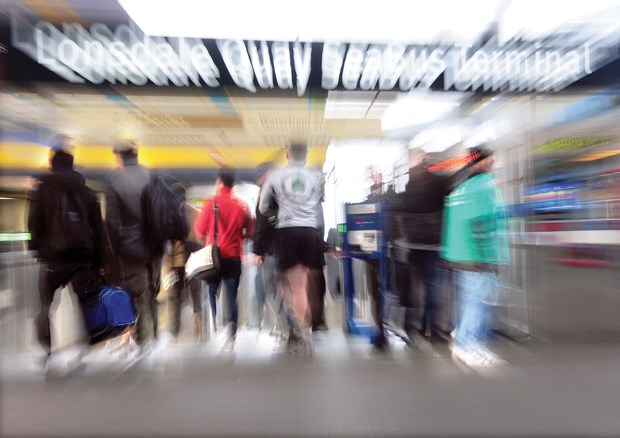Though the debate rages on, Lower Mainland residents will soon have the only say that matters in the TransLink funding plebiscite — the one on their mail-in ballots.
The ballot packages have been arriving in mail boxes all week.
The question on the ballot is: “Do you support a new 0.5 per cent Metro Vancouver Congestion Improvement Tax, to be dedicated to the Mayors’ Transportation and Transit Plan?”
The plan is a $7.5-billion list of capital projects for transportation improvements around the Lower Mainland.
For the North Shore, it would mean B-line bus services between Lynn Valley and downtown Vancouver, Capilano University and Metrotown, and Phibbs Exchange and Dundarave. SeaBus service would be increased to 10-minute intervals during rush hours and 15 minutes during off-peak hours. And the regular bus service throughout North Vancouver would go up by 30 per cent, along with more funding for road and bicycle lane improvements.
The mayors estimate the sales tax increase will cost the typical resident about 35 cents per day or $127 per year.
Critics of the campaign have targeted TransLink’s unelected board and costly waste, and argued that there’s no guarantee, even with a successful Yes vote, that the senior levels of government will show up with their share of the funding.
On Tuesday, after introducing the province’s 10-year transportation plan, Transportation and Infrastructure Minister Todd Stone said the province would commit to providing its third — but only if the plebiscite passes. The federal government hasn’t made any commitments related to the remaining third.
Stone also had a message for those hoping the plebiscite would be the catalyst that finally pushes the province to change TransLink’s governance model — one of the sore points for people on both sides of the debate. Stone called that a “red herring” and “distraction” from the campaign and said he has no plans to alter the governance model, regardless of the vote’s outcome.
Recent polls have put the No vote ahead in the campaign by a ratio of about two to one.
Elections B.C. will accept returned ballots up until May 29 and deliver weekly updates on the voting results starting on April 1. The final count is not expected until the summer and will be delivered in the Legislative Assembly.



